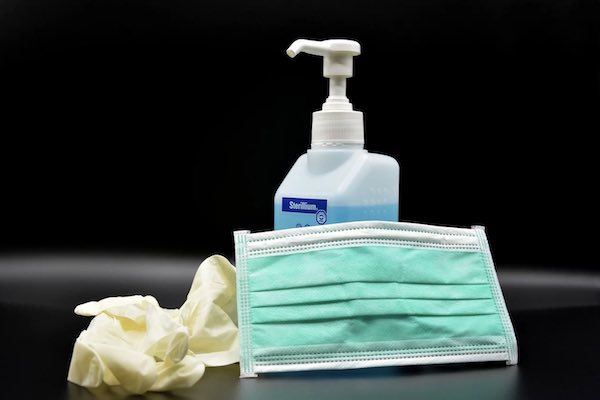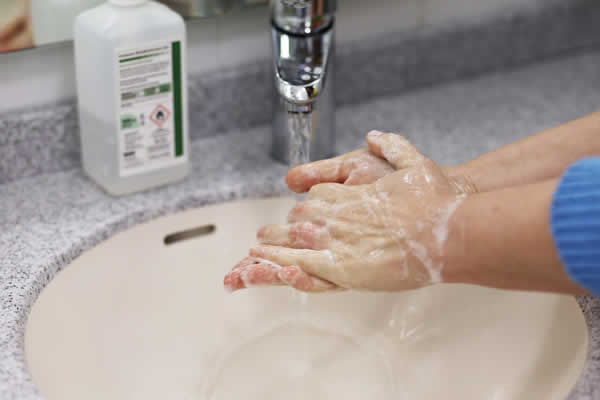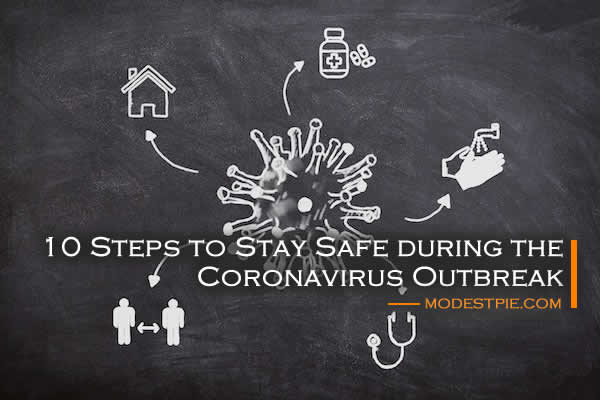The current situation with the coronavirus outbreak has disrupted many businesses and activities on a global scale. While a vaccine to counter this is being worked upon, it is the civic and moral duty of every person, everywhere, to take part in the global effort to reduce this threat against humanity.
In today’s article, we go through some key steps and practices to help us and our loved ones stay safe during the coronavirus outbreak.
1
Self-Isolation and Quarantine
The very first step is to avoid going out during this period. Avoid travelling and visiting crowded areas. Postpone vacations where possible. In most cases, if flights are cancelled early enough, refunds of airfare may still be possible or credited back to airline accounts, or flights can be changed to a future date.
Avoid areas where people congregate such as shopping malls and places of worship. For the necessities and grocery shopping, assign one person to do the shopping and leave other members of the household at home, especially young children and the aged.

Avoid places of worship as there has been a number of reported cases of contracted infection during mass congregation at churches, mosques and other religious gatherings. Virtually gather on your WhatsApp groups. Do your praying at home if need be.
Most countries have implemented either a lockdown or a movement control order, and it is advised that everyone adheres to this ruling in order to contain the spread of the coronavirus.
2
One Person Per Trip
Should going out be inevitable during this movement control order period, limit it to only one person. This minimises the exposure of the members of your household to the chances of contracting the virus.
The head of the family should be assigned to carry out these tasks, with all other family members including children and pets remaining safely at home.

However, we have seen husbands being sent out to do the grocery shopping, only to do a bungled job or taking a long time to complete it. In such a situation, it may be a better idea to assign the person most suited for the job, as long as it can be done quickly and efficiently. Viruses don’t discriminate between genders, and minimising outdoor time reduces exposure risks significantly.
3
Wear Masks and Gloves
It is advisable to wear a mask when going out. Although masks are generally ineffective against the coronavirus due to its micro-size, it would help to contain aerosol droplets when the person coughs or sneezes. This is essential if the person has contracted the virus but isn’t aware of it yet, as the incubation period of the coronavirus is estimated to be 14 days or more.
It is essential that someone who has been out and about who may already have contracted the virus not spread it further, and this can be minimised by wearing a mask. A mask in this sense, works in the same way when surgeons wear a mask during an operation – to avoid transmitting any possible disease to the patient on the operating table.

You may also find gloves to be useful as this minimises physical contact and it is easily disposable once you are done about your activities. Nitrile latex gloves are recommended and will come in handy for tasks such as filling up gas at the petrol station and handling shopping trolleys. They can be disposed of once the task is done.
4
Carry Sanitizers and Wet-Wipes
If you have to go out, it would be prudent to take along a hand sanitizer or alcohol-based antibacterial wet-wipes along.
Use these after any transaction of any nature while you’re out, and wipe your hands down before getting into your car or before entering your home.
It may be a good idea to keep a bottle of hand sanitizer at the entrance of your home so that you will remember to use it upon reaching home.
5
Avoid Handshakes
While handshakes are considered a gesture of respect and courtesy, it is best to avoid any form of physical contact with another person at this time.
People will understand during this period of tribulation that it is not rude if you do not want to shake hands. The same goes for hugs and high fives!

6
Use e-Wallets and Contactless Credit Cards
When paying for groceries, try to avoid using cash and use an e-wallet or a contactless (Wave) credit card instead. Insist on tapping the credit card on the payment terminal yourself instead of passing the credit card to the cashier.

It is best to minimise contact via transmitted objects like cash, but if this cannot be avoided and you need to use cash, see Step #8 below.
7
Use an Implement to Touch Objects
While we have been advised to stay at home during this period, there are times when we need to leave the house to buy essential goods and food.
It is best not to use your hands and fingers when moving about, for example when pushing open doors or pressing lift buttons. Use an implement that you can sanitize or dispose of after repeated use (such as a toothpick), or use an area of your limb that you would not accidentally touch your face with (such as the little joint or knuckle of your ring finger or your elbows) – ring or even middle finger…just in case you accidentally pick your nose with your pinky!

In any case, do Step #8 below after an outing, and use an alcohol-based sanitizer periodically.
8
Wash Your Hands Often
The coronavirus can spread through touch and physical contact, especially when contaminated hands are then used to touch the eyes, nose and mouth.
Avoid rubbing your eyes and touching your face, and more importantly, wash your hands frequently with soap or sanitising handwash for at least 20 seconds under running water.

9
Cook Your Own Food
It is recommended that you cook and prepare your own food from the raw materials you get from your groceries, versus getting take-outs or relying on food and beverages delivered to your home. This will minimise your interaction with others outside of your household, and thus limit your risks of exposure to transmission and contraction of the coronavirus.
Avoid any sort of goods delivery where possible during this period. This includes flowers, online shopping items, postal material and any non-essentials that can be put off to a later time.

10
Take Your Vitamin C
Boost your immune system with a daily dose of Vitamin C. Chewable tablets are good, but the effervescent tablets dissolved in water are most effective. If you feel like flu is imminent, it is best to dose yourself with Vitamin C. Alternatively, consume fruits and juices rich in Vitamin C.

Taking a daily dose of apple cider vinegar is also a good way to maintain good health and immune system.
Although the efficacy of zinc lozenges against the coronavirus is unknown, it has been found to alleviate flu and cold-like symptoms. Maintaining a strong immune system is one key to surviving through this harsh period of viral outbreak.
It is important to remain fit and healthy, so avoid doing anything that could lead to compromised immunity.
In closing, we would like to say this: Having to stay at home all the time during this lockdown and movement control order is likely to set you in boredom and get you itching to do something. Facing your spouse all day could also lead to more fights and arguments than usual.
Keep yourself active and busy at home. Read a few books. Take the opportunity and time to learn a new skill. Emerge from this outbreak a new and better you. It would be nice when we return to normalcy, things are better than the way before, and that includes the new and upgraded version of you.
Meanwhile, sit tight at home for now and let’s hope this whole phenomenon blows over soon.
SANITIZING PRODUCTS on eBAY
Purchase Protective Gear on Amazon






